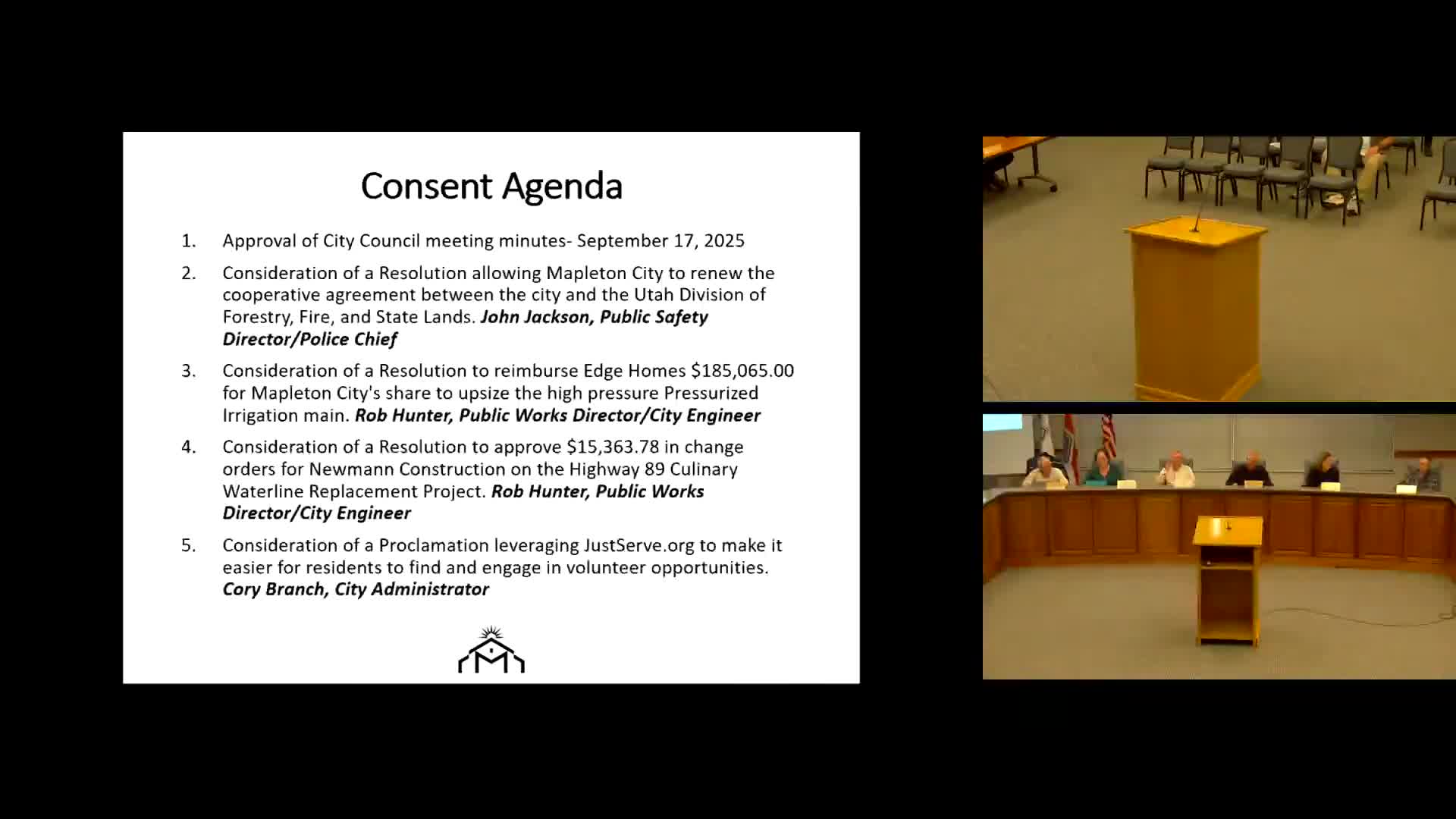Mapleton residents urge tighter oversight after unfinished Twin Hollow work leaves safety and quality-of-life concerns
Get AI-powered insights, summaries, and transcripts
Subscribe
Summary
At a recent Mapleton City Council meeting, residents from the Twin Hollow and Hidden Hollow neighborhoods urged the city to require stronger oversight of developers after years of unfinished work left roads, sidewalks and storm drains incomplete and open lots littered with debris.
At a recent Mapleton City Council meeting, residents from the Twin Hollow and Hidden Hollow neighborhoods urged the city to require stronger oversight of developers after years of unfinished work left roads, sidewalks and storm drains incomplete and open lots littered with debris.
“This impacts our safety, our community standards, our property values, and the overall quality of life,” Berkeley Nelson, a Twin Hollow resident, told the council. Nelson asked the city to adopt “conditional approvals,” so developers cannot begin new projects until existing obligations are fully and satisfactorily met.
Nelson described clogged storm drains, unfinished sidewalks, debris-filled lots and repeated episodes of off-road vehicles and dirt bikes using undeveloped areas at high speeds. “These unrestricted spaces have also encouraged juvenile activity that caused a recent fire … that required massive response from our own Mapleton firefighters and the National Forest Service at a significant cost to taxpayers,” he said.
Josh Christiansen, another Twin Hollow resident, echoed Nelson’s request for inspection timelines and consequences for neglect: “Developers should not be allowed to move on to new projects until they have fully and properly finished existing ones. We need clear timelines, inspections and consequences for neglect.”
City officials acknowledged the problems and outlined next steps. Mayor Hanks said staff will form a neighborhood group to collate outstanding items and invite the developer to a meeting. Sean (city staff) explained the city typically links final inspections and the release of developer bonds: if a phase has not passed final inspection, bonds are not released. He said the city has used bond funds in the past to complete work when developers did not finish their obligations.
Rob (city staff) and other staff described recent field visits, noted repairs under way (including a retaining wall and repeated work on a storm drain), and said some unfinished work has been addressed after the city pressured the developer. Staff recommended documenting remaining deficiencies on a plat map so the city and neighborhood can identify what must be finished before bonds are released or other enforcement steps are pursued.
Officials discussed enforcement options the city can use, including forcing completion through bond foreclosure. City staff cautioned that foreclosure can be time-consuming and sometimes leads to litigation that delays fixes; they said the city typically tries mediation and negotiated timelines before foreclosing on bonds.
Police and fire leaders will be engaged to address safety issues. Chief Glasgow and other emergency services were referenced as part of a follow-up group that the mayor said would include police, fire and public works representatives.
Neighbors also raised traffic and access concerns tied to new phases: staff noted certain future lot connections and access points must be constructed before additional phases can be built, and that some newly approved phases are owned by different parties (residents were told parts of the original ownership were sold to Mesquite Presidio, Toll Brothers and individual purchasers). City staff said that separate ownership limits the city’s leverage over off‑site owners but reiterated that bond leverage and inspection holds still apply for unfinished infrastructure inside a phase.
Residents asked the council to inspect the neighborhood and urged elected officials to use the current election season to emphasize developer accountability. Mayor Hanks and staff said they would meet with neighborhood representatives and the developer to identify a path to completion.
Ending: Council members and staff scheduled continued follow-up with residents, public‑works staff and emergency services; staff said it will help form the neighborhood group, produce a list of outstanding items, and pursue measures (including using bond funds or foreclosure if necessary) to complete the work. The meeting did not record any formal vote on enforcement at this session.
